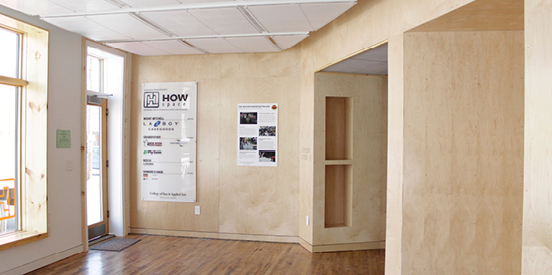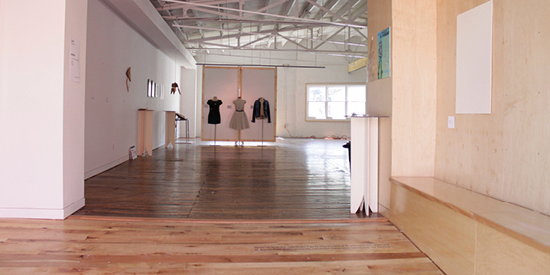InZone—Cultivating Collaborative Environments
The Innovation and Design Cooperative is intentional about creating working environments that foster engagement, collaboration and, ultimately, innovation. As we work to develop innovation zones (we term them INZones) across campus, we focus on the following three key interlinking dimensions.
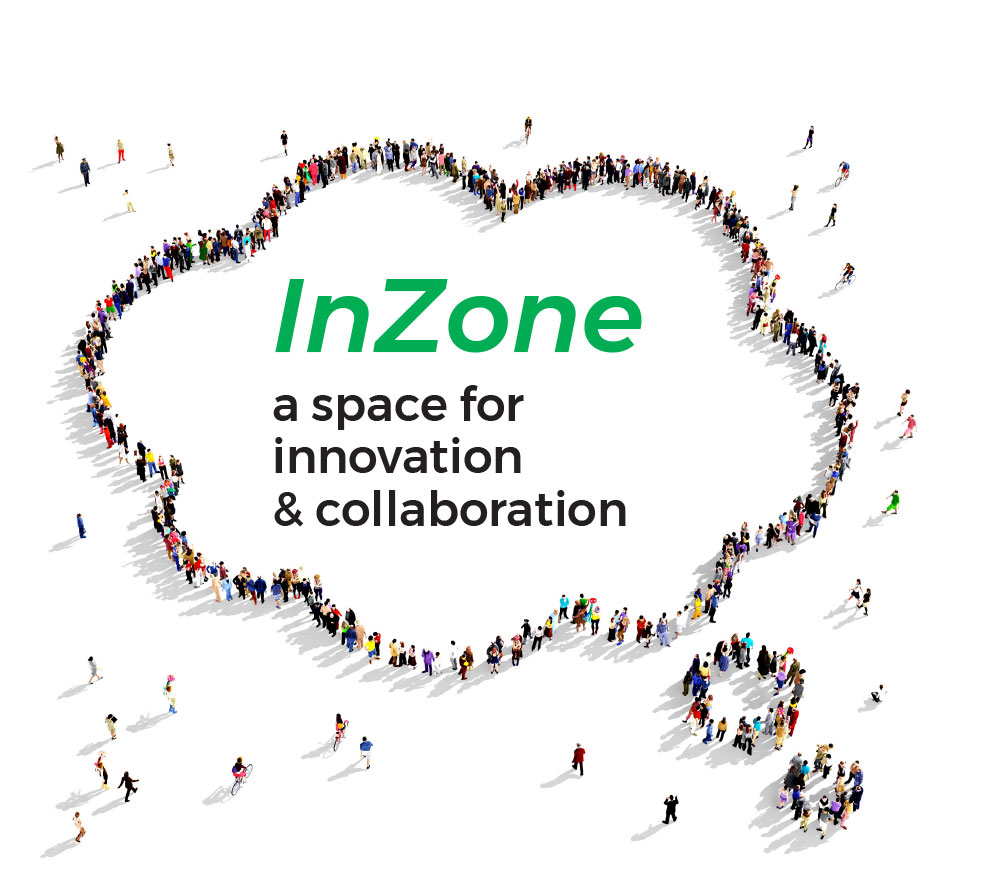
Culture
Culture is difficult to see and feel as it is a manifestation of shared attitudes, assumptions and deeply embedded rituals. Yet, awareness of culture is crucial for understanding and shaping collective behavior. Cultivating a particular culture requires being intentional about the advocacy of certain values and ensuring organizational structure aligns to desired behaviors. For this reason, INZones are intentional about continuously espousing IDC’s core values and rethinking traditional measures of academic assessment to encourage collaboration, risk taking and novel thinking.
Process
IDC is serious about process. And, yes, everyone can learn to be an innovator, if they just learn to follow a creative problem-solving process. For this, we focus on a variety of innovation methodologies (design thinking, agile, soft systems methodology, etc.) while paying keen attention to human needs, and we are passionate about teaching the tools and techniques that are embedded within the array of approaches. Additionally, IDC faculty are actively engaged in research to further develop and contribute to the innovation process body of knowledge. Their work in these areas is published widely in both national and international journals.
Space
“We shape our buildings; thereafter they shape us” were the wise words of Winston Churchill, and we agree entirely. We believe that there is an integral link between physical spaces, process and culture. To build an innovative organization, we must consider the relationship between all three. Thus, we are working to ensure INZones contain the following:
- Group space to support collaboration
- Publishing space (whiteboards) to support visual communication and brainstorming
- Maker space to support rapid prototyping
- Private space to support individual work
- Play space (ping pong tables, games, etc.) to encourage collaboration and fun
- Library space to support data collection
Steelcase Active Learning Center
The Innovation and Design Cooperative has earned a $65,000 Active Learning Center Grant from Steelcase Education to support AppLab. The grant program aids teachers and students by creating an environment that encourages engagement, collaboration and creativity.
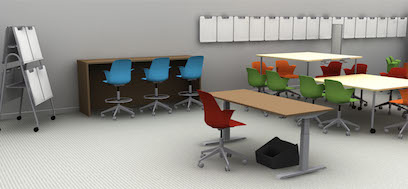
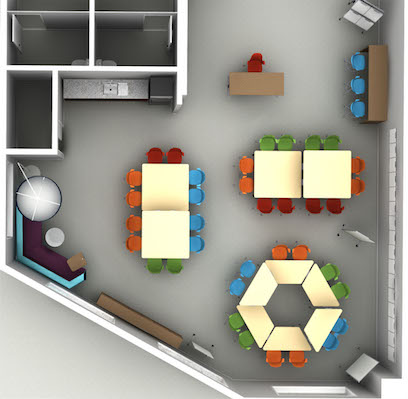
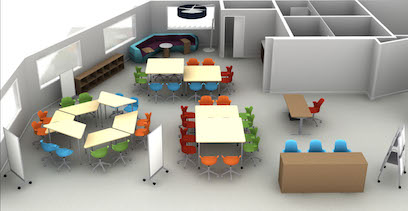
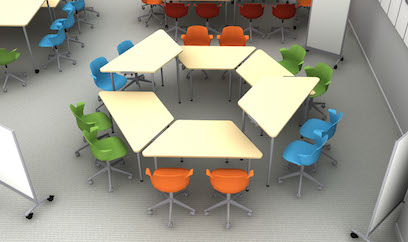
HOW Space Facility
Many of the AppLab activities take place in the How Space, a new collaboration space on the Appalachian State Campus. The HOW Space mission is to advance creative and collaborative student and faculty projects that engage the local community. The space functions as a window for the community, showcasing what we do at the university and in the college.
